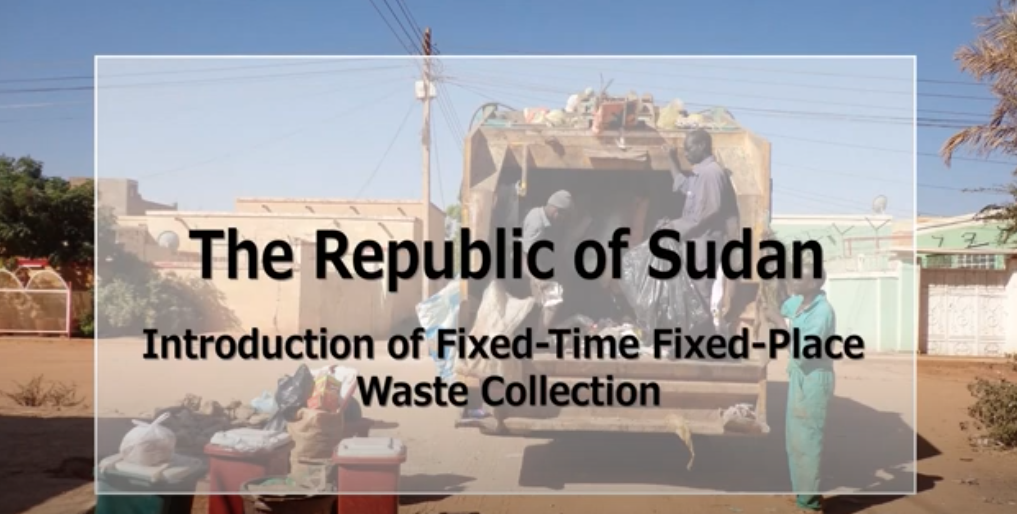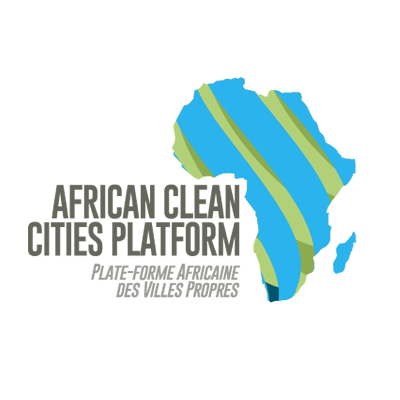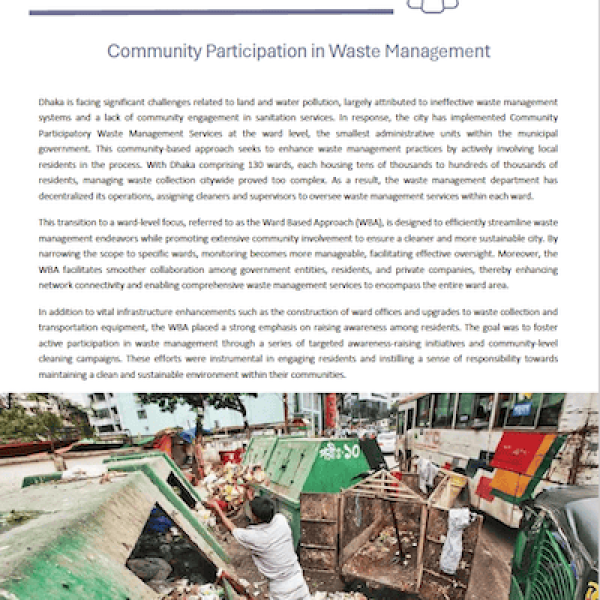
BANGLADESH, DAKHA
Dhaka is facing significant challenges related to land and water pollution, largely attributed to ineffective waste management systems and a lack of community engagement in sanitation services. In response, the city has implemented Community Participatory Waste Management Services at the ward level, the smallest administrative units within the municipal government. This community-based approach seeks to enhance waste management practices by actively involving local residents in the process.
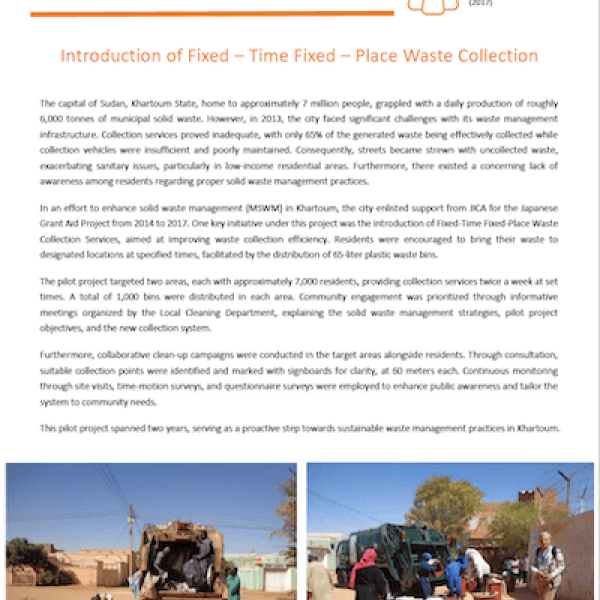
SUDAN, KHARTOUM STATE
The capital of Sudan, Khartoum State, home to approximately 7 million people, grappled with a daily production of roughly 6,000 tonnes of municipal solid waste. However, in 2013, the city faced significant challenges with its waste management infrastructure. Collection services proved inadequate, with only 65% of the generated waste being effectively collected while collection vehicles were insufficient and poorly maintained. Consequently, streets became strewn with uncollected waste, exacerbating sanitary issues, particularly in low-income residential areas.
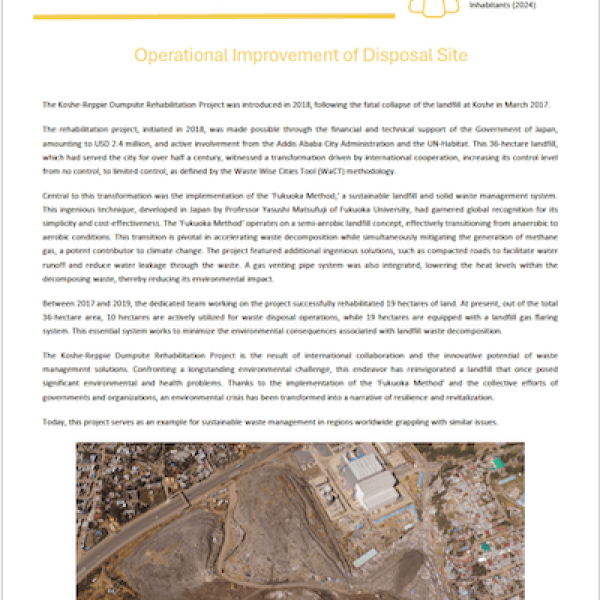
ADDIS ABABA, ETHIOPIA
The Koshe-Reppie Dumpsite Rehabilitation Project was introduced in 2018, following the fatal collapse of the landfill at Koshe in March 2017.

VIETNAM, HANOI
In the early 2000s, Hanoi faced a pressing environmental issue with widespread waste scattered throughout the city and illegal dumping in landfills, lakes, and water streams. Despite national strategies promoting recycling, only the informal sector engaged in recyclables collection.
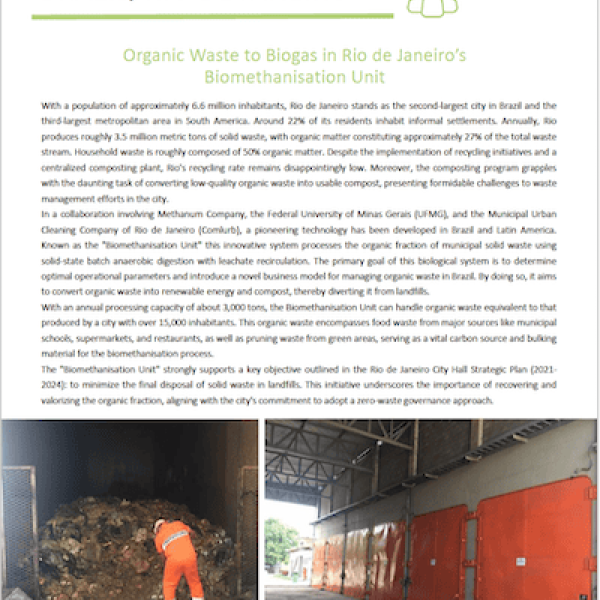
BRAZIL, RIO DE JANEIRO
With a population of approximately 6.6 million inhabitants, Rio de Janeiro stands as the second-largest city in Brazil and the third-largest metropolitan area in South America. Around 22% of its residents inhabit informal settlements. Annually, Rio produces roughly 3.5 million metric tons of solid waste, with organic matter constituting approximately 27% of the total waste stream. Household waste is roughly composed of 50% organic matter. Despite the implementation of recycling initiatives and a centralized composting plant, Rio's recycling rate remains disappointingly low.
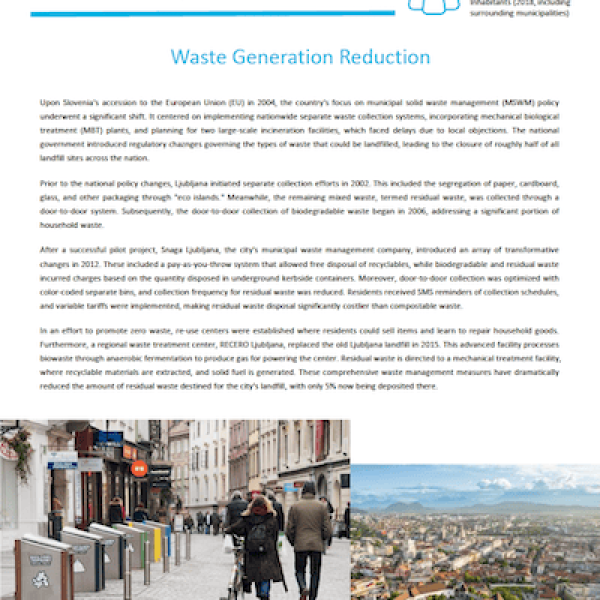
LJUBLIANA, SLOVENIA
Upon Slovenia's accession to the European Union (EU) in 2004, the country's focus on municipal solid waste management (MSWM) policy underwent a significant shift. It centered on implementing nationwide separate waste collection systems, incorporating mechanical biological treatment (MBT) plants, and planning for two large-scale incineration facilities, which faced delays due to local objections. The national government introduced regulatory changes governing the types of waste that could be landfilled, leading to the closure of roughly half of all landfill sites across the nation.
